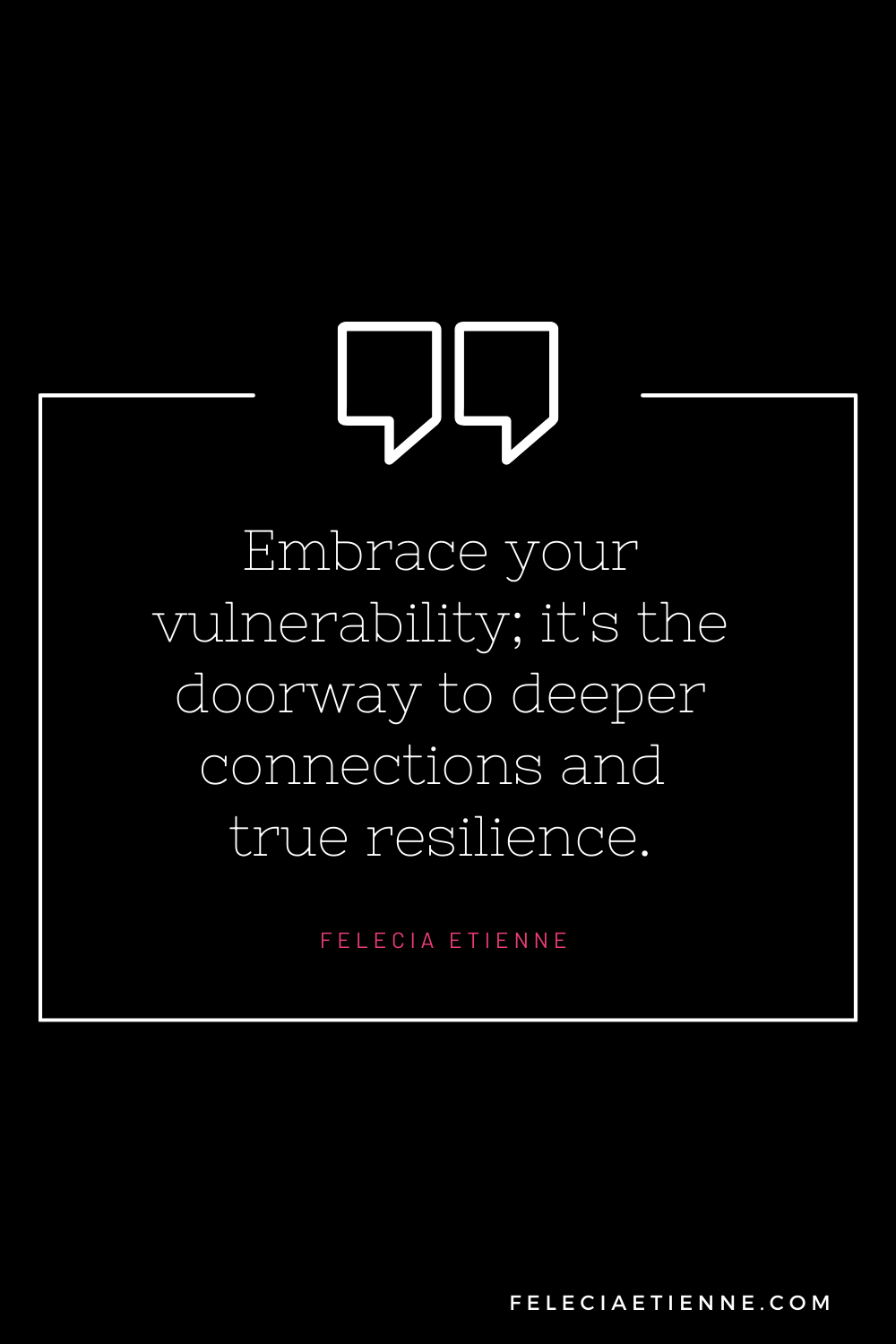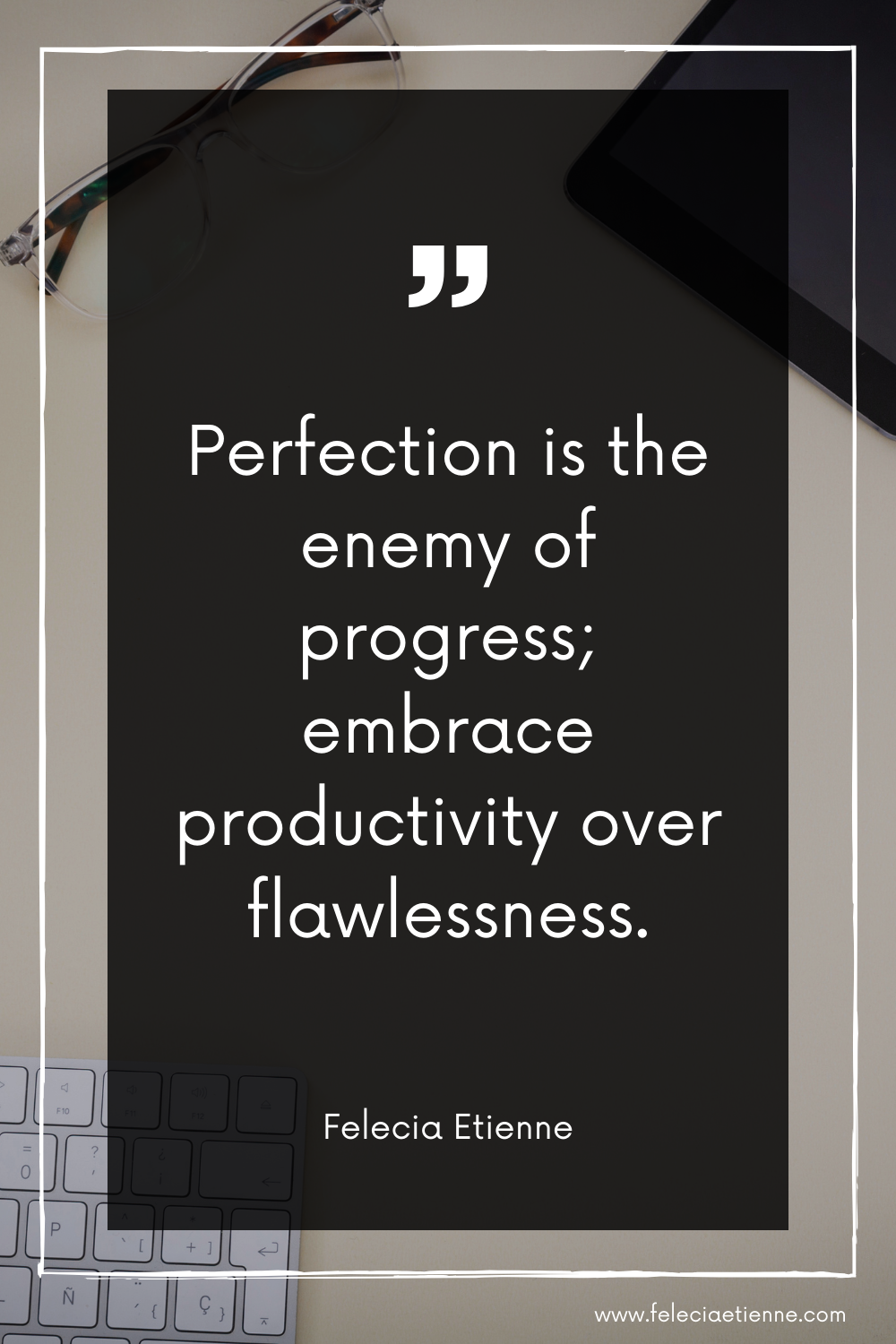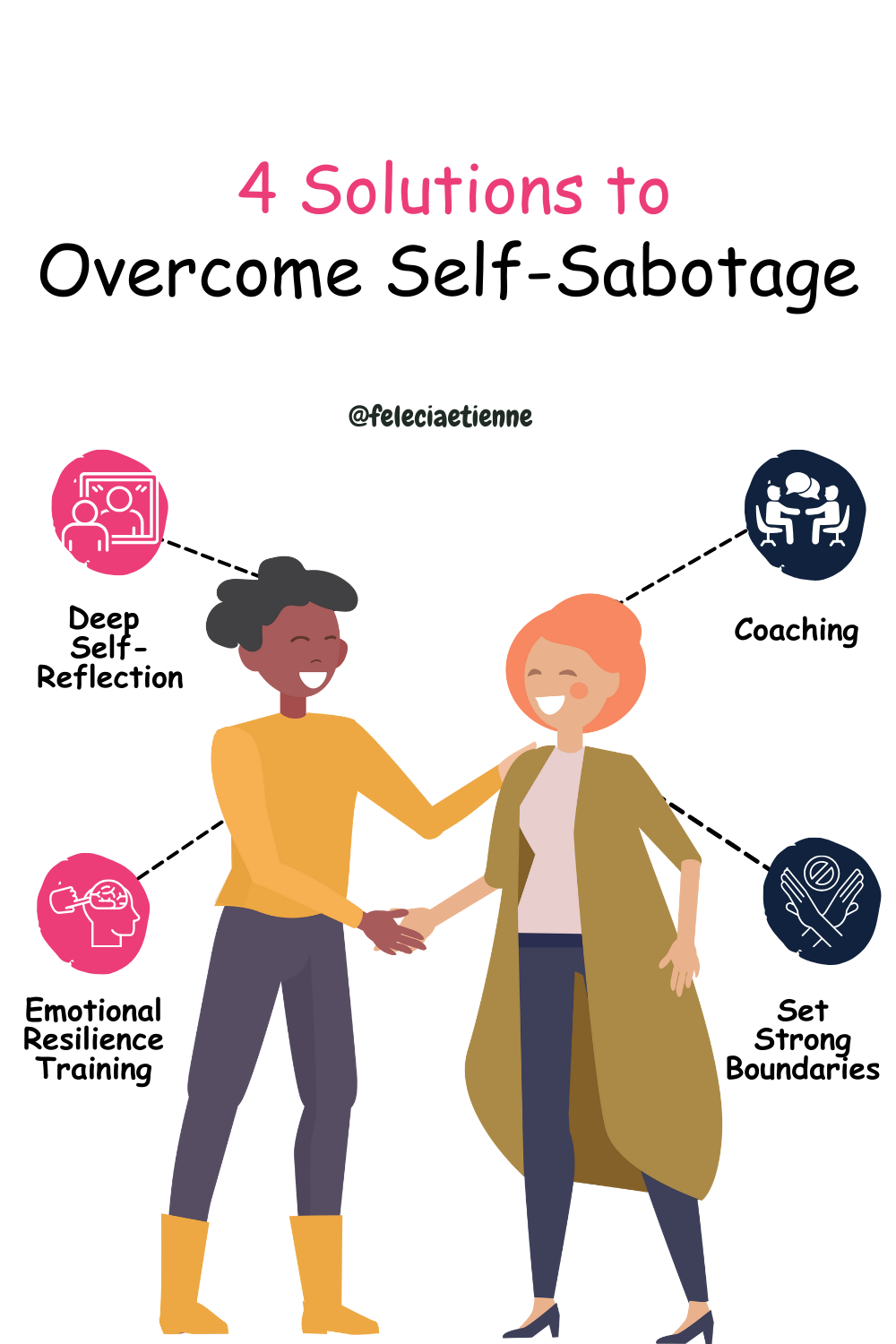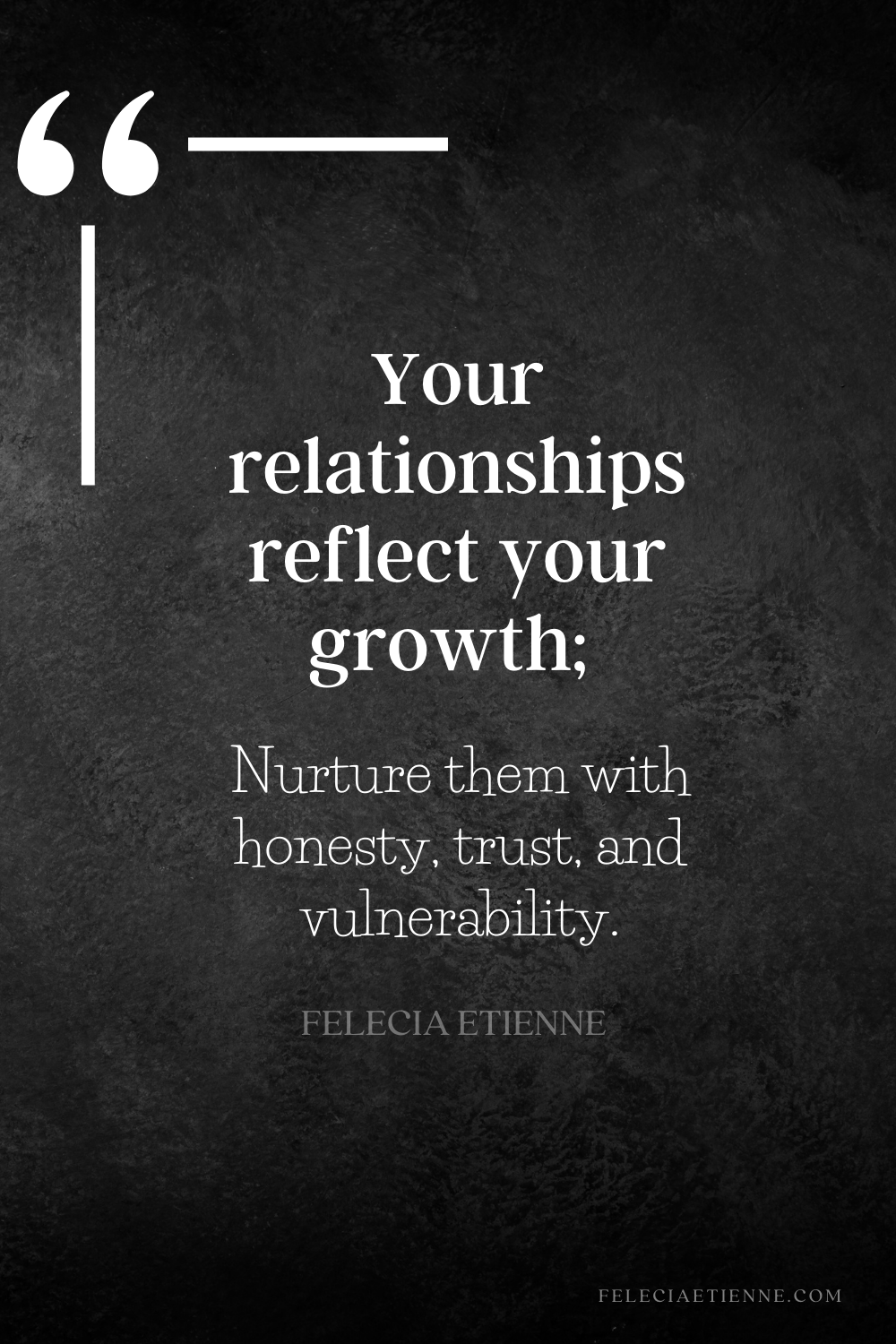Are You Sabotaging Your Relationships Without Even Realizing It? Here's How to Stop
Ever felt like you're getting in your own way, especially when you want your relationships to thrive? You're not alone. Self-sabotage is sneaky and can deeply affect your closest connections, something you might not expect as someone who excels in other areas of life.
Insecurity and fear are often the culprits behind these patterns, making you feel stuck and disconnected. But here's the good news: there are effective ways to break free from these cycles.
In this blog post, we're diving into what self-sabotage is all about, how it messes with your relationships, and some real ways you can kick these bad habits to the curb. Don't let self-sabotage dictate your life—learn how to recognize and conquer it for healthier, more fulfilling relationships.
Understanding Self-Sabotage and Its Causes
“Self-sabotage dims your light. Commit to nurturing your growth, no matter how scary it feels.”
RELATED ARTICLE: Overcoming Self-Sabotage: Recognizing and Defeating Your Inner Saboteur
Have you ever caught yourself undermining your own success and well-being? Self-sabotage can sneak into your life, making it tough to grow personally and build healthy relationships. Sometimes, it happens without you even realizing it, driven by fears and unresolved issues from your past.
Fear of Vulnerability:
“Embrace your vulnerability; it’s the doorway to deeper connections and true resilience.”
Do you struggle to open up to others? Many of us fear being vulnerable because it feels like exposing our true selves, which can be scary. This fear might lead you to push people away to avoid the risk of rejection or emotional pain.
Fear of Abandonment:
Have past experiences left you afraid of being abandoned? This fear can make it hard to trust others, causing you to sabotage relationships before they have a chance to grow, just to dodge that pain again.
Low Self-Esteem
“Self-worth isn’t earned; it’s recognized. See your value and let it shine through every action.”
Do you struggle with believing you deserve love and happiness? When you think you're unworthy, it's easy to engage in self-destructive behaviors that confirm those negative thoughts about yourself.
Unresolved Trauma:
“Healing begins when you face your unresolved traumas. Let your scars be the story of your resilience.”
If you have unresolved traumas, especially from childhood, they can leave deep emotional scars. These issues might be self-sabotage, affecting your relationships and overall well-being.
Examples of Self-Sabotage
To better understand self-sabotage, consider the following scenarios that you might relate to:
Romantic Relationships
Imagine you're a high-achieving professional like Jane, who consistently finds herself in short-lived relationships. Do you ever create unnecessary conflicts over trivial issues, pushing your partners away? Deep down, Jane—and perhaps you too—might fear being unworthy of love. By pushing partners away, you avoid facing potential rejection.
Friendships
Picture yourself as Mark, someone successful in your career but struggling with friendships. Have you ever felt jealous when your friends achieve something significant? This often leads to strained relationships. Mark’s—and possibly your—jealousy stems from insecurities and the fear of not measuring up.
Work Environment
Consider Sarah's situation—she's a team leader who frequently procrastinates on important projects. Does your perfectionism and fear of failure prevent you from completing tasks on time, affecting professional relationships and career growth? Sarah's experience might mirror your own challenges.
RELATED ARTICLE: Self-Sabotage: The Enemy Within - A Comprehensive Guide for High Achievers
The Connection Between Self-Sabotage and Relationships
Self-sabotage can sneak into various types of relationships, including romantic partnerships, friendships, family relationships, team dynamics, and business partnerships. Understanding how you might be sabotaging yourself and why is crucial for breaking the cycle of self-destruction.
Romantic Relationships
In romantic relationships, do you ever find yourself avoiding deep conversations or picking unnecessary fights? These behaviors often stem from a fear of intimacy and vulnerability. You might be pushing your partner away because you're afraid of being hurt or abandoned.
Friendships
“Celebrate others’ success—your own path to happiness is unique.”
Have you ever felt jealous of a friend's success or been overly critical of them? This self-sabotage can strain your friendships and usually comes from a lack of self-confidence. It's about fearing you're not good enough.
Family Relationships
Do you avoid family obligations or find yourself in conflicts over trivial matters? These actions can create long-lasting rifts within the family, leading to a sense of isolation. Understanding these patterns can help you mend these crucial bonds.
Workplace Relationships
“Perfection is the enemy of progress; embrace productivity over flawlessness.”
At work, do you procrastinate or set impossibly high standards for yourself? This can lead to stress and burnout, damaging your professional relationships and hindering your career progression. Recognizing this can help you create a healthier work environment.
Leadership Team Dynamics
Poor delegation or micromanaging can create a toxic work environment if you're in a leadership role. This self-sabotage decreases team morale and productivity. Learning to trust your team can transform your leadership style.
Business Partnerships
Failing to fulfill responsibilities or communicate effectively in business partnerships can erode trust and potentially dissolve the partnership. Addressing these issues can strengthen your professional bonds.
How Self-Sabotage Ruins Relationships
“Break the cycle of self-sabotage; transform conflict into connection and isolation into intimacy.”
Self-sabotage can severely damage your relationships, creating a cycle of conflict, mistrust, and isolation.
Here are some ways in which self-sabotage can ruin different types of relationships and what you can do to stop it:
Romantic Partnerships
In romantic relationships, self-sabotage can lead to a lack of trust and emotional connection. If you find yourself avoiding vulnerability and intimacy, you might be preventing the formation of deep, meaningful bonds. This can leave your partner feeling unloved and unappreciated, potentially leading to a breakup. Imagine the possibility of embracing vulnerability and watching your relationship flourish with deeper connections and mutual understanding.
Friendships
Self-sabotage in friendships can make you feel isolated and disappointed. Jealousy and mistrust might creep in, eroding the foundation of your friendship. This could end up causing some misunderstandings and conflicts, making you miss out on valuable support and shared happiness. Picture a scenario where you confront and overcome these feelings, strengthening your friendships and enjoying those carefree moments together.
Family Relationships
Within families, self-sabotaging behaviors can lead to estrangement and long-standing grudges. Avoiding open communication and fostering resentments can turn your family environment emotionally distant and unsupportive. Think about the possibility of mending these bonds by addressing issues head-on and fostering a supportive family dynamic.
Workplace Relationships
In the workplace, self-sabotage can hinder your professional interactions and growth. Procrastination and perfectionism might lead to missed deadlines and subpar performance, affecting your colleagues and team dynamics. This can make work super stressful and slow down your career progress. Envision a work life where you tackle tasks head-on and collaborate effectively, boosting your career and workplace harmony.
Leadership Team Dynamics
Poor leadership decisions driven by self-sabotage can result in a lack of trust and respect from your team members. Ineffective delegation and communication can stifle collaboration and innovation, reducing productivity and morale. Consider the possibility of becoming a leader who inspires trust and fosters a collaborative, innovative team environment.
Business Partnerships
“Clear, honest communication builds profitable partnerships; nurture trust for lasting success.”
Self-sabotage in business partnerships can result in broken commitments and a lack of trust. Miscommunication and unmet expectations can damage the partnership’s foundation, leading to financial losses and potentially dissolving the business relationship. Imagine turning things around by building clear, honest communication and maintaining trust, ensuring a successful and profitable partnership.
Recognizing and Overcoming Self-Sabotage
“Your fears are shadows of the past. Step into the light of your full potential.”
Realizing you're getting in your own way is step one to beating those habits.
You might not even know you're doing it, but here are 13 signs that you could be self-sabotaging your relationships:
1. conflict:
Do you find yourself creating drama or arguments for no reason? This could be a way you're sabotaging your peace.
2. Jealousy/Insecurities
Feeling threatened by others' success or relationships? It's a common struggle, but it can damage your connections.
3. Avoidance:
Are you dodging important conversations or conflicts? While avoidance might feel safe, it often leads to bigger issues.
4. Mistrust:
Constantly doubting others' intentions can erode trust. Do you often find yourself questioning those around you?
5. Control Issues:
Trying to control or manipulate situations? This can stifle the natural flow of relationships.
6. Toxic Communication:
Using harmful words or actions? Toxic communication can create lasting damage.
7. Inconsistency:
Are you hot and cold in relationships? This inconsistency can confuse and hurt those you care about.
8. Blaming Others:
Dodging responsibility for what you've done? Blaming others is a defense mechanism that prevents growth.
9. Fear of Intimacy:
Avoiding vulnerability and emotional connection? It's scary, but true intimacy requires openness.
10. Unrealistic Expectations:
Expecting perfection from yourself and others? These high standards can lead to disappointment.
11. Isolation:
Pushing people away instead of seeking support? Isolation can be a sign of self-protection, but it often leads to loneliness.
12. Lack of Boundaries:
Struggling to set healthy boundaries? Boundaries are essential for healthy, respectful relationships.
13. Insecurity:
Constantly seeking validation and reassurance? Insecurity can create a cycle of dependency and dissatisfaction.
RELATED ARTICLE: 5 Common Symptoms of Self-Sabotage and Ways to Stop the Cycle
Solution to Overcome Self-Sabotage
To break free from self-sabotaging behaviors, consider these strategies:
1. deep Self-Reflection:
Dedicate time to consistently analyze your actions and thoughts. Challenge yourself with questions like, "What drives my behavior?" Journaling is a powerful tool for revealing hidden patterns and triggers that lead to self-sabotage. Take control of your journey!
2. Coaching:
Consider working with a high-performance coach or mental fitness expert. They can help pinpoint the underlying reasons for your self-sabotage, whether past traumas or learned behaviors and provide strategies to overcome them. Coaching offers a proactive space to explore these issues and develop healthier coping mechanisms.
3. Emotional Resilience Training:
Develop emotional resilience through targeted exercises and techniques. As a high-performance coach and mental fitness expert, I can help you build the mental toughness needed to navigate life's challenges with confidence and grace, ultimately leading to more fulfilling and stable relationships.
4. Aim for Milestones, Not Mirages:
Set attainable, impactful goals and revel in your journey. Each step forward represents a win worthy of celebration. Embrace progress over perfection and transform each milestone into a moment of success. Your path is just as important as the destination.
5. Boost Your Self-Esteem:
Elevate your self-worth by diving into activities that light you up and surround yourself with positive, uplifting people. Feel the power of self-confidence!
6. Master Communication:
Transform your relationships by practicing active listening and speaking your truth. Embrace open dialogue and truly understand others' perspectives—communication is the heartbeat of connection.
7. Set Strong Boundaries:
Protect your peace and nurture respect in your relationships by establishing firm, healthy boundaries. Create a space where mutual respect thrives and well-being flourishes.
Early Identification of Self-Sabotage in Relationships
“Peace begins with self-awareness. Recognize the drama, and choose harmony instead.”
By incorporating these steps, you can start to overcome self-sabotage and build healthier, more fulfilling relationships. Remember, change is possible, and it begins with you taking the first step.
Recognizing self-sabotage early in a relationship can prevent significant damage.
Pay attention to the following signs:
Frequent Conflicts
Do you find that minor issues often escalate into major arguments? This might indicate underlying self-sabotaging behaviors that you or your partner need to address.
Avoidance of Intimacy
If you notice either of you consistently avoiding deep conversations or emotional closeness, it could be a sign of fear of vulnerability, which is crucial to overcome for a healthy relationship.
Inconsistent Behavior
Unpredictable actions and emotions can create instability and mistrust. If you or your partner are inconsistent, it’s essential to understand why and work towards stability.
Overreacting to Small Issues
Do you or your partner overreact to minor problems? This can indicate deeper insecurities and fears that need attention to build a stronger bond.
Recognizing these patterns early on can save your relationship from unnecessary pain. It's not about pointing fingers; it's about understanding and growing together. You have the power to change and create the loving relationship you deserve.
RELATED ARTICLE: OWNING YOUR IDENTITY: BREAKING FREE FROM EMOTIONAL SHACKLES AND UNLOCK YOUR TRUE POTENTIAL
Helping Your Partner or Friend with Self-Sabotaging Behaviors
“Your relationships reflect your growth; nurture them with honesty, trust, and vulnerability.”
Have you noticed your partner or friend displaying self-destructive patterns?
It can be tough to see someone you care about struggle, but there are ways you can help:
Offer Support:
Be there for them. Show understanding and let them know you care about their well-being. Your support can make a big difference.
Support them in Seeking Expert Guidance for Maximum Results:
Suggest they seek help from a mental fitness coach or counselor. You could help them find a therapist or even offer to go with them to their first session if it would make them feel more comfortable.
Communicate Openly:
Have an honest conversation about what you've observed. Use "I" statements to share how their behaviors affect you and your relationship. This can help them see the impact of their actions.
Set Boundaries:
It's essential to protect your own well-being too. Set clear boundaries and encourage them to do the same. This can help create a healthier dynamic for both of you.
Model Healthy Behavior:
Show them what a healthy relationship looks like. Effective communication and healthy habits can be powerful examples.
By addressing self-sabotaging behaviors together, you can help create a positive change and strengthen your relationship. Remember, you're not alone in this; support is available for both of you.
Mental Fitness and Overcoming Self-Sabotage
When you're trying to overcome self-sabotage in your relationships, mental fitness is your best ally. Just like physical fitness involves regular exercise and healthy habits, mental fitness requires consistent practices to strengthen your mind and emotional well-being.
RELATED ARTICLE: Overcoming Self-Sabotage: Recognizing and Defeating Your Inner Saboteur
Mental Fitness Strategies
Mindfulness and Meditation:
Regular mindfulness and meditation practices can help you become more aware of your thoughts and behaviors in your relationships, reducing the likelihood of self-sabotage. Imagine noticing those moments when you start to withdraw or push your partner away, and being able to course-correct in real-time.
Positive Affirmations:
Use positive affirmations to counter negative self-talk and build self-confidence. When you're in a tough spot with a loved one, reminding yourself of your worth can change the entire dynamic.
Gratitude Practice:
Cultivate gratitude by regularly reflecting on the positive aspects of your life and relationships. This practice can transform your mindset, helping you appreciate your partner more and criticize less.
Stress Management:
Start building healthy ways to deal with stress, like working out, diving into hobbies, and chilling out with some relaxation techniques. When you're calm, present, and centered, you're way less likely to snap at your loved ones, teammates, or employees.
By integrating these strategies into your daily life, you'll improve your mental fitness and pave the way for healthier, more fulfilling relationships.
RELATED ARTICLE: Turn Stress into Your Ally: Techniques for Personal Development and Resilience
A Message of Hope | Conclusion
In Conclusion, self-sabotage can profoundly affect all types of relationships, from romantic to professional. Understanding its causes and recognizing its manifestations are the first steps toward change. You can overcome self-sabotaging behaviors and build healthier, more meaningful connections by implementing practical strategies, seeking professional help, and fostering mental fitness.
You are worthy of love and happiness in your relationships. Don’t let fear or negative patterns hold you back from genuine connection. Practice self-care, improve your communication skills, and set healthy boundaries to create fulfilling relationships.
If you find yourself struggling, remember there's no shame in seeking help. Change is possible with determination and self-awareness. Commit today to build stronger, healthier relationships by defeating self-sabotaging behaviors once and for all.
Thanks for joining me on this journey! To keep making progress, take the free 2-minute Saboteur Assessment for insights on how self-sabotage might be affecting you. Also, check out our free Self-Sabotage Solution Checklist.
Together, we can leave self-sabotage behind and unlock your true potential.
Keep thriving, because you are capable of overcoming any obstacle that comes your way. #NoSelfSabotage #HealthyRelationships #MentalFitness
Ready to achieve your dream life? I’m Felecia Etienne, your go-to Certified High-Performance Coach™ and Mental Fitness Coach. Let me take you on a transformative journey with a Complimentary Unlock Your Performance EDGE call. This isn’t just a chat—it’s your ticket to the high-performance tools and techniques I’ve shared with my coaching clients.
In this personalized call, you'll:
- Dive into your dreams and goals, tackle obstacles, and bridge the gap between where you are and where you want to be.
- Uncover and combat triggers of self-sabotage while discovering untapped strengths.
- You'll walk away with actionable strategies that deliver immediate impact
Equip yourself with the strategies, resources, and support needed to shatter obstacles, self-sabotaging, narrow the gap, and transform your ambitions into tangible achievements. Ready to escape inertia and boost your impact? Book a private and confidential session. Unlock Your Performance EDGE with Felecia. Let's unlock your potential together.
To find out more about Felecia, you can visit her website at feleciaetienne.com.
Social Media Handles:


















